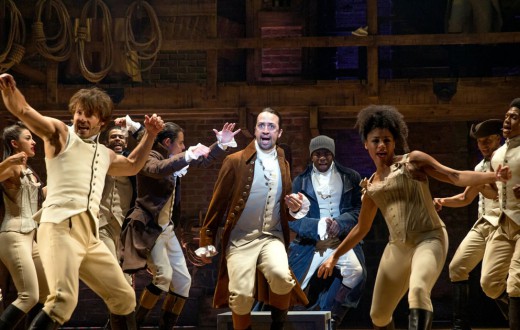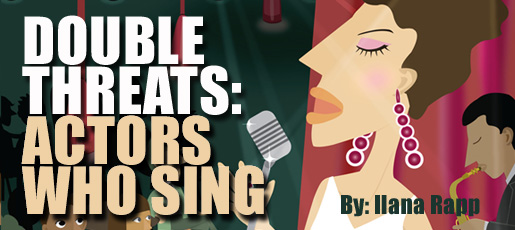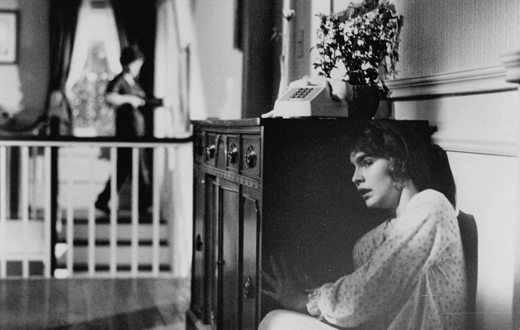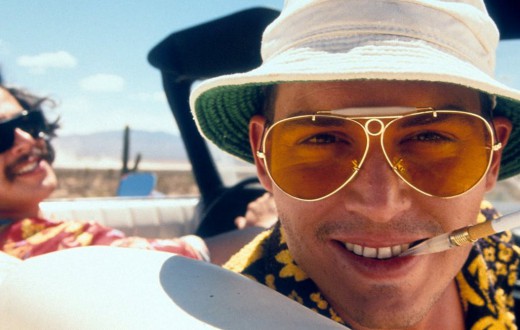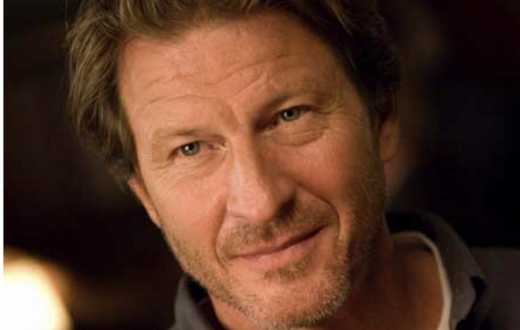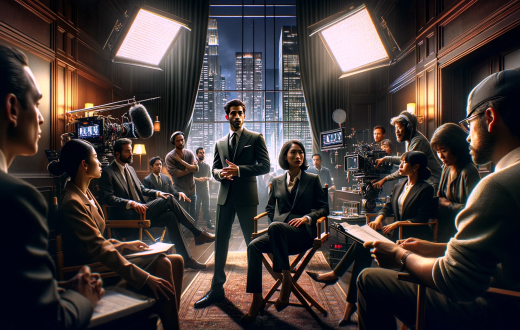If there’s one thing that actors of all stripes worry about, it’s appearance. Let’s just be honest, kids.
Yes, our talent is the most important thing, of course. But acting is a notoriously looks-oriented business. There are very few other “job interview” scenarios apart from auditions in which you’ll find yourself in a room surrounded by so many incredibly good-looking fellow “applicants.”
It can be intimidating! And as Hollywood has made all too clear, when it comes to age there is a really ugly bias that seems to be baked into the system by which beauty and therefore “castability” is judged.
Now, some of these prejudices are changing, thankfully. But one dumb prejudice that remains stubbornly present is how important we consider age to be when it comes to auditioning. I talk to so many actors who fret and worry and stress over what they consider their age range. And especially when it comes to auditions: if the character breakdown doesn’t line up perfectly with their actual age, actors often go into the read carrying an extra weight of stress. Auditioning is hard enough without worrying about the number that appears in the DOB section of your driver’s license rather than thinking about lines and character.
And this stress isn’t just for older actors. When it comes to kids’ auditions, many parents stress about whether their child of 11 can read for a part that the breakdown lists as 7-10 years old. So given that age can preoccupy so many of us across the spectrum, here are a few general thoughts on age and acting and auditioning in general, informed by numerous conversations with casting directors and other industry professionals and what they are actually looking for on the ground every day.
1. Your Actual Age Doesn’t Matter
This is really hard to drill home for many actors, but the fact of the matter is that like many things when it comes to casting, what lies beneath the surface is often the least important factor. It’s cruel but true to say that the impression you make in the first 15 seconds you enter the audition room and the first few moments of your read are likely to have the biggest impact on those sitting behind the table. It’s your energy, your personality and how they mesh with your appearance that make the biggest impact. Your list of accomplishments and awards and classes and previous roles don’t mean nearly as much as the vibe you give off and the look you present walking in the door. Neither does your actual age. Your apparent age is the important thing, as most any CD will tell you. In fact, based on numerous interviews with casting directors and other people involved in the casting process, if there’s one message regarding actor’s age that they could get across to us, it would be this: “Let US decide how old you can play!” I’ve had several CDs recommend against actors indicating their actual age in any way in the auditioning process. Their message is not to lie about your age, it’s just that you shouldn’t box yourself in or plant any kind of seeds of doubt before you’ve even gotten a chance to imbue the character you’re being asked to play with your own particular energy.
2. Breaking Down The Breakdown
And another thing honest CDs and directors will tell you regarding the audition is that that breakdown, that lifeline to the character that you consider so important and regard as a bible of sorts for how you should approach your read is often anything but. That includes the age range listed. The truth is that these breakdowns – while a valuable set of general guidelines about the character and the piece – are often scribbled out by harried, overworked assistants who have only glanced at the pages you’re going to be reading from, or who may only be familiar with the piece via a synopsis provided by the production. That’s also why it’s so important to be open to allowing yourself different interpretations of the character and the scene you’re given and not feel locked in to that two-line blurb. That’s also why you shouldn’t sweat it too much if your actual age falls a little bit outside the range called for.
3. Being Honest About Your Apparent Age
Now, having said that, we must strive to be honest with ourselves again here, guys. If you’re a guy pushing 30, maybe thinning a bit on top – and filling out a bit in the middle – maybe even sporting one or two of what I like to call “blond” hairs here and there, do you really think you should be reading to play a high school student? Facing what’s in the mirror is the important thing. Not denying but embracing your apparent age is one great key to happiness and success when it comes to acting. Fighting against how you read to others and insisting that your actual age is the age you must play every time can get really frustrating. At the risk of sounding like a typical needy actor, it might be a worthwhile exercise to get with your agent, people from your acting classes, or others within your acting network to really assess where you fall on the apparent age spectrum, and how they see you being cast. And again, really being honest here is the key: if you have doubts based strictly on age before you even walk in to the audition, you’ve already sabotaged yourself. However, if you’re not quite in the age range listed and you really feel an affinity with the character and the piece, and you can bring a clear, sharp take on the material, there’s just no need to burden yourself with that nonsense. Let the CD decide!
4. To Age Up Or Age Down?
This is a tricky one because everyone’s going to have a different definition of what this actually means. Not only that, every CD and director is going to have a different notion of what kind of preparations and tweaks they’d like to see actors make when they come in to read. Some will tell you to dress the part, some will say it’s your acting and energy that matter, and not to bother with what you wear. ON the other hand, I’ve heard of actors who will drive around with a veritable costume shop in their car for auditioning purposes: a white lab coat to read for a doctor, gaudy jewelry to read for a mobster, etc. So as far as aging up or down, let’s just say use common sense and use caution. Dressing a bit more conservatively to play older, wearing your hair in a neater, more “adult” manner, sure. But there’s really nothing weirder than when people go too far with this stuff and stray hard from where their natural energy and looks actually are. Aside from Young Sheldon (and perhaps including him?) a kid in a suit and tie looks just weird and wrong. It’s like he’s being dragged to a wedding or a funeral – and might be willing to switch places with the person in the coffin, if it would get him out of that suit. On the other end of the scale, there’s nothing more pathetic than a craggy-faced guy who has celebrated at least a few “39th birthdays” gelling up his frosted-tip hair and cramming his widening, middle-aged bum into skinny jeans. So in general, I think most CDs, producers and directors would advise you to…
5. Embrace What You’ve Got
This is an important lesson in a number of regards when it comes to acting, but it’s especially important when it comes to age. Look, no one wants to get typecast. We all want to explore our range as actors. But you’re not doing yourself any favors as far as booking roles if you don’t play to your strengths. Your apparent age is a part of the array of signals you as an actor send to a CD and hopefully an audience. Fighting against it makes as much sense as fighting against your height. And anyway, when it comes to actors and the age they appear to an audience, keep in mind that that nasty Hollywood prejudice favoring the young and beautiful doesn’t extend to every role, or even to most roles. For every Greek god or goddess of a leading man or woman with ripped washboard abs and aged perfectly between 21 and 27 years old, there are a dozen roles that call for people who look like actual humans that fall all across the age spectrum. Embrace what you’ve got, bring your particular sensibility and positive energy, and forget the rest!


